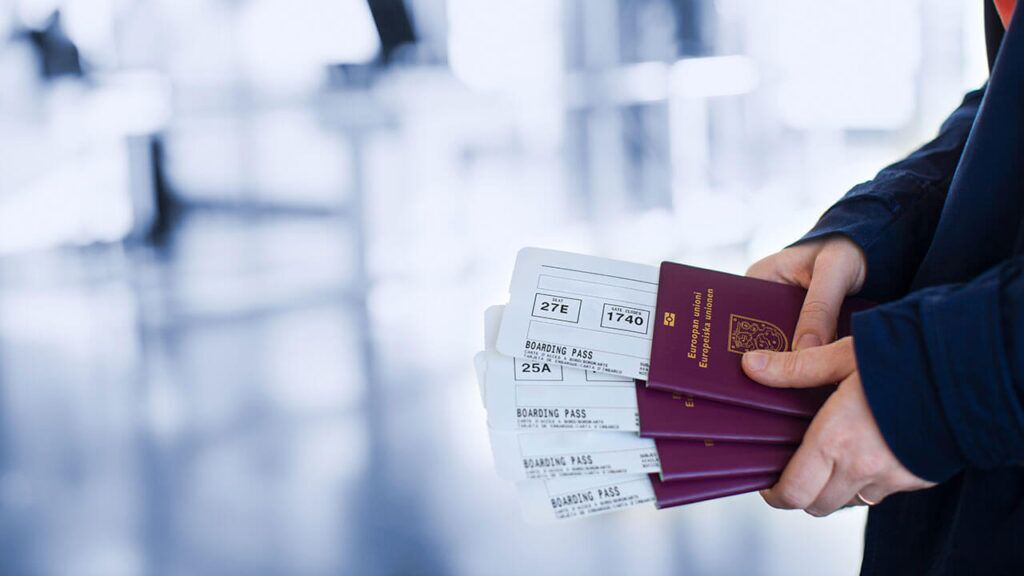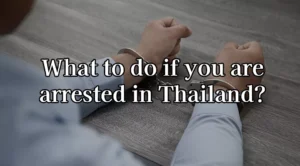Thailand Travel Restrictions for UK Citizens

Required Documents for Travel to Thailand
Please have the following documents ready.
- Passport with at least six month validity
- Visa or visa exemption qualification
- Buy Thailand Travel Insurance
- Boarding pass to be presented at Passport Control
- Hotel booking confirmation if asked by Immigration Officer
- Note: Vaccination record no longer required
Incorrect documents will delay the entry screening by rules from the Thai immigration bureau and its Thai immigration officials.
[button style=’red’ url=’https://www.siam-legal.com/axa-insurance’ target=’_blank’ icon=’icon-entypo-basket’]Buy Your Insurance Now[/button][/infobox]
No travel is risk-free in times like these, where COVID-19 is still present. Over the last two years, countries imposed travel restrictions and entry requirements to help monitor and reduce the spread of Covid around the world.
Each country was different, and many travelers found the quickly shifting rules and regulations confusing. Thailand was no exception. Though slow to reduce its strict entry requirements, Thailand has made big changes since the start of 2022. Its largest change has been implemented at the of July and travel is now almost as easy as it was pre-covid.
These are the major changes that will affect travelers from July 1:
- Foreigners do not need to show proof of Covid Insurance.
- All mandatory hotel quarantine has been removed.
- Thailand Pass is no longer required for foreign travelers entering Thailand.
- Vaccinated travelers do not need to provide proof of vaccination before arriving.
- Unvaccinated travelers (including children traveling with unvaccinated parents) will need to complete an RT-PCR or Professional Antigen Test (Pro-ATK) test 72 hours before departing for Thailand. Proof does not need to be uploaded before traveling.
- Airlines and Thai Immigration will do random checks to confirm travelers meet Covid prevention requirements (vaccination certificate or Covid test).
- Wearing masks is no longer compulsory.
- The TM6 arrival card has been temporarily removed when entering Thailand.
This is great news for British citizens once again looking to visit the beautiful tropics of Thailand. July 1 welcomes Brits back at the height of summer, and Thailand locals are preparing to once again welcome travelers.
Covid has not disappeared, so people still need to be responsible when traveling. If you are British and looking to escape after so long in isolation, there are still a few things you need to know to help create a worry-free holiday.
Thailand Visas for UK Citizens
Visa Exemption for UK Citizens
UK passport holders may travel to Thailand without a visa as long as it is for the purpose of tourism. They may stay for a maximum of 30 days through the Visa Exemption Program. You may extend your permit to stay for a further 30 days at any local immigration office.
If you need to stay in Thailand longer than the Visa Exemption or are traveling for a purpose other than tourism, Siam Legal International law firm offers various Thailand Visa services for travelers from the UK. You may check our services through our website at: https://uk.siam-legal.com/thailand-visa/
Long Term Visas for Brits
Tourist Visa and Special Tourist Visa (STV)
Foreigners may also apply for a Tourist Visa from the Thai embassy or consulate. There is the normal 60-day tourist visa that can be extended for additional 30 days, and the 90-day Special Tourist Visa (STV), which can be extended for two 90-day visa extensions at the local immigration office. There are certain requirements needed for the STV, but it allows a visitor to stay in Thailand for a potential 9 months. The STV will be available until September 2022.
Thai Elite Visa
If you wish to make Thailand easily accessible for many years to come or are perhaps thinking of relocating permanently, it is worth having a look at the Thai Elite Visa.
The Thai Elite Visa allows British citizens to live in Thailand for 5, 10, or even 20 years. Thai Elite members do not need to worry about some of the eligibility criteria that are needed when applying for other long-term visas.
The Thai Elite visa is exclusive and offers a host of benefits to holders. If you want to enjoy “Thai life” for the long term, you can read more about the Thai Elite Visa.
Non-Immigrant Visa
Foreigners may also apply for a wide range of non-immigrant visas:
- Non-immigrant B Visa – for conducting business or employment
- Non-immigrant O visa – for visiting Thai spouse and family
- Non-immigrant ED visa – for students of recognized institutions in Thailand and their Parents or Legal guardian
- Non-immigrant O retirement visa – for those who wish to retire in Thailand
- Non-immigrant OA and OX visa – for those who wish to obtain a Thailand retirement visa for long stay (it differs from type O visa)
The above visas can be organized with a local Thai Embassy or Consulate in Britain. The paperwork can be quite involved, but there are companies that can help.
As mentioned above, Siam Legal International is a professional company who have helped world travelers apply for Thai long-term visas over the years. They are well versed in Thai Immigration policies and procedures. If you would like to simplify your long-term stay in Thailand, you can contact one of their visa experts.
Entering Thailand from Britain after July 1
As noted above, Thailand Pass is no longer required from July 1. British travelers do not need to register, provide documents, or seek approval before traveling to Thailand.
How British visitor enters Thailand will still depend on their vaccination status, so there are a few things to do.
Vaccinated Travellers – Vaccinated travelers from Britain do not need to complete any Covid tests before leaving their country. They will need to have a copy of their vaccination certificate on hand. Children under 18 who are traveling with vaccinated parents do not need to complete any RT-PCR or Pro-ATK test before departing.
Unvaccinated Travellers – Before coming to Thailand, unvaccinated travelers will need to complete an RT-PCR or Professional Antigen (Pro-ATK) test through a clinic or medical professional. The test result must be issued within 72 hours before departing the UK.
An ATK (RAT) home test is not acceptable. Children under 18 who are traveling with unvaccinated parents also need to complete a test.
Airlines and Immigration will conduct random checks of passengers to confirm Covid requirements are met. It is best to have your Vaccination or Covid test Certificate available to show.
Flights to Thailand from the UK
The most popular direct trip from the United Kingdom to Thailand is from London to Bangkok, which takes roughly 12 hours and 15 minutes and lands at Bangkok Suvarnabhumi Airport or Phuket International Airport if the flight is a direct flight.
Airlines that fly directly to Thailand include:
- British Airways
- Thai Airways
- EVA Air
For indirect flights:
- Qatar Airways
- Emirates Airline
- Malaysia Airlines
- Singapore Airlines
Previously, if you landed in Bangkok and wanted to transit domestically you were required to complete Test & Go at your point of entry, or board a “sealed flight”. This is no longer the case. With the removal of Test & Go, Sandbox, and mandatory quarantine, UK citizens can land at any international airport in Thailand and transit domestically right away.
Most international airlines follow the rules of the arrival country. If you are transiting through another country, it is best to check with the airline if you need to complete any tests for that country. When landing in Thailand, you can purchase an ATK self-test at airports, pharmacies, and most convenient stores.
Accommodation in Thailand
Everyone needs somewhere to stay after a long flight. After July 1st, all visitors are welcome to book any accommodation. British holiday-makers do not need SHA+ hotels or quarantine packages. There is no need to provide any proof of accommodation, and most hotels have removed their “Quarantine Packages” from their websites.
To find and compare the best hotels available in Thailand, visit Agoda. They allow free booking and cancellation, confirm bookings with hotels, and have their web page is easy to navigate and compare hotels.
Organize some Travel Insurance
Travel Insurance is always a hot topic. It has become synonymous with “Covid”. The fact is that from July 1, Thailand does not require foreign visitors to have insurance with Covid cover. Travelers do not need to provide any proof of insurance in order to enter Thailand.
Before Covid, seasoned travelers understood the benefits of comprehensive travel insurance. Covid has not changed this. Though travel restrictions have eased, Covid is still a problem and the last thing British travelers wants is to have their holiday cut short, or be forced to quarantine while they recover from Covid.
The most important thing to know about insurance is that foreign travelers are not eligible for any form of free medical care in Thailand. No matter the circumstance, if a UK citizen needs medical attention, they will need to pay for it. Depending on the severity, this could amount to thousands of dollars in out-of-pocket expenses.
Insurance is one of those things that is better to have and not need than need and not have. Your travel insurance doesn’t just cover Covid. Comprehensive travel insurance will also cover:
- Medical emergencies
- Personal injury & accidents
- Missed or delayed flights
- Damage to belongings
- Loss of luggage
There are multiple reasons to protect yourself when traveling. Many visitors to Thailand choose AXA Insurance Thailand. It is a trusted company that offers comprehensive insurance to travelers from around the world. Their policies are straightforward with good coverage.
Some advantages to AXA Insurance are:
- Recognized and trusted by Thai authorities and medical facilities.
- Easy to apply online and approved in minutes.
- Competitive pricing and cover.
- Has no 14-day waiting period and covers Covid-related incidents, including asymptomatic cases.
- Provides customers with a convenient 1-Page Certificate of insurance. This certificate contains all relevant information needed by medical professionals or if making a claim.
To see the cover offered and organize your insurance to Thailand in minutes. Visit AXA Thailand.
Arriving in Thailand – Best Practices
So what can you expect when landing in Thailand? Besides beautiful weather, delicious food, white beaches, and mountains with elephants, British travelers can expect a friendly welcome.
There are things to know while in Thailand. Though many of these things are not mandatory, you find that many of the locals are still aware that Covid can occur if not careful.
Wearing Masks
From July 1st, masks are no longer compulsory but still recommended when in public places. You see many Thai people (and visitors) still wear masks when out and about. It is recommended to wear a mask when visiting restaurants or public venues. You will not get in trouble if you don’t wear a mask, but it is a case of “do as the locals do”. It is about respect and consideration.
TM6 Arrival Cards
The Thai government has temporarily removed the need for visitors to complete the blue arrival card known as TM6. Their aim is to ease congestion at airports and remove another form that holidaymakers need to complete. This initiative is in a testing phase, but it is hoped that the removal of TM6 will be successful and the change will become permanent.
Paperwork to Prepare
Though Thailand Pass is removed, and travelers do not need to provide a proof before entry, it is best to prepare a few documents before arriving.
- Certificate of Insurance
- Vaccination certificate (vaccinated travelers)
- 72-hour RT-PCR or Pro-ATK test result (unvaccinated)
- Covid-19 recovery certificate (if previously tested positive)
This will speed up your processing time before leaving your country, or if asked to provide vaccination or testing proof in a random check. These documents can be presented in digital form, but airlines, Immigration, and Health Officers will appreciate the extra effort if you print them.











































